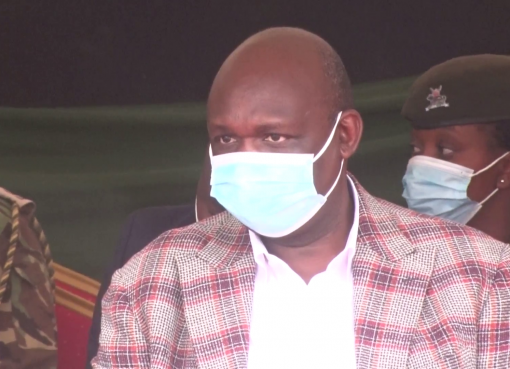Primary School teachers have been urged to embrace digital innovation to ensure that learners receive quality education regardless of their backgrounds.
The Chief of Staff and Head of Public Service Felix Koskei encouraged teachers to reflect on how best they can collaborate with relevant stakeholders to equip learners with the competencies, skills, attitudes, and values needed to thrive in the 21st Century’s future of work.
“Since we stand at the crossroads of a digital revolution, we must recognise that education is not just a pathway to knowledge; it is a cornerstone for innovation, equity, and sustainability,” said Koskei when he opened the Kenya Primary Schools Head-teachers Association (KEPSHA) conference in Mombasa.
The 25th conference attended by over 15,000 Head-teachers is themed: Transformative Leadership in the Digital Transition for Inclusive and Sustainable Quality Basic Education in Kenya.
The journey towards a fully digital education system, the Chief of Staff stated is rooted in a vision of inclusivity and progress.
He noted that by leveraging digital technology, the country stands to expand access to quality learning opportunities to every corner, even the most remote areas.
“With digital platforms students in underserved regions can connect to the same educational resources as those in urban areas, closing the gap in educational equity.
“Digital technology enables us to break down barriers, allowing every child—regardless of their background—to have a chance at a brighter future,” said the Chief of Staff.
Koskei lauded the Competency-Based Curriculum (CBC) terming it as a coherent system that is in tune with the digital shift the education sector envisions to transition to.
Through CBC, he said the Ministry is not merely teaching content, but rather preparing learners with the critical skills they need to thrive in the 21st Century workforce.
“The integration of digital literacy into our curriculum is a forward-looking approach that emphasises creativity, adaptability, and critical thinking, essential skills in today’s fast-evolving global landscape,” said Koskei.
“The digital transformation sweeping across the globe presents us with a powerful opportunity to bridge the digital divide and elevate learning outcomes. This digital transition demands that we do more than integrate technology into our classrooms. It requires us to redefine how we teach, learn, and lead,” he added.
The Chief of Staff reiterated the government’s commitment to providing Free Compulsory Basic Education, as enshrined in the Constitution of Kenya and recognised as a fundamental human right.
To support this, the government is working towards ensuring timely capitation funding across all levels of basic education.
The Head-teachers were exhorted to implement policies that promote accountability, prudent resource use, and the efficient running of school operations.
During the Financial Year 2024/2025, the education sector has been allocated Sh627.7 billion, with Sh24.217 billion designated for Primary Schools and Sh30.7 billion for Junior Schools.
“This significant allocation underscores the trust placed in us to use these resources wisely and responsibly to benefit every Kenyan child,” advised Koskei.
The Head-teachers were further encouraged to uphold the principles enshrined in the Public Finance Management Act and the Public Procurement and Assets Disposal Act.
“Adherence to these statutes is not merely procedural; it is foundational for fostering transparency and ensuring impeccable audit trails. By steadfastly following these guidelines, we embody accountability and integrity, affirming our commitment to the responsible stewardship of public resources,” stated the Chief of Staff.
On his part, Principal Secretary for the State Department for Basic Education Dr Belio Kipsang said the constructions of 16,000 classrooms for grade nine are on course and will be ready for usage in January.
“We should be asking and requesting you to put aside the resources that are meant for maintenance and improvement so that we can be able to acquire desks to ensure that the classrooms will be useful in January,” stated Dr Belio Kipsang.
He said they will continue to work with head-teachers as the government engages development partners to ensure there is a smooth and seamless transition and stability of learners.
“From next year, we should be working with you to ensure that we have integrated laboratories to be able to firm up the foundation of CBC,” he revealed.
The PS further assured the Head-teachers that capitation will be disbursed before schools open for the first term in January.
“Going forward, notwithstanding the fiscal space that we have found ourselves in as a country, we want to commit ourselves that we should do what it takes to ensure that the first charge of our resources goes to our children through capitation.”
KEPSHA Chairman Johnson Nzioka said they will ensure a 100 per cent transition to Grade nine as the classrooms under construction will create enough space to accommodate all learners.
However, he urged the government to review upwards the construction cost of classrooms from the current Sh1M and adjustment of capitation to Primary Schools as recommended by the Presidential Working Party on Education Reforms.
By Sadik Hassan





